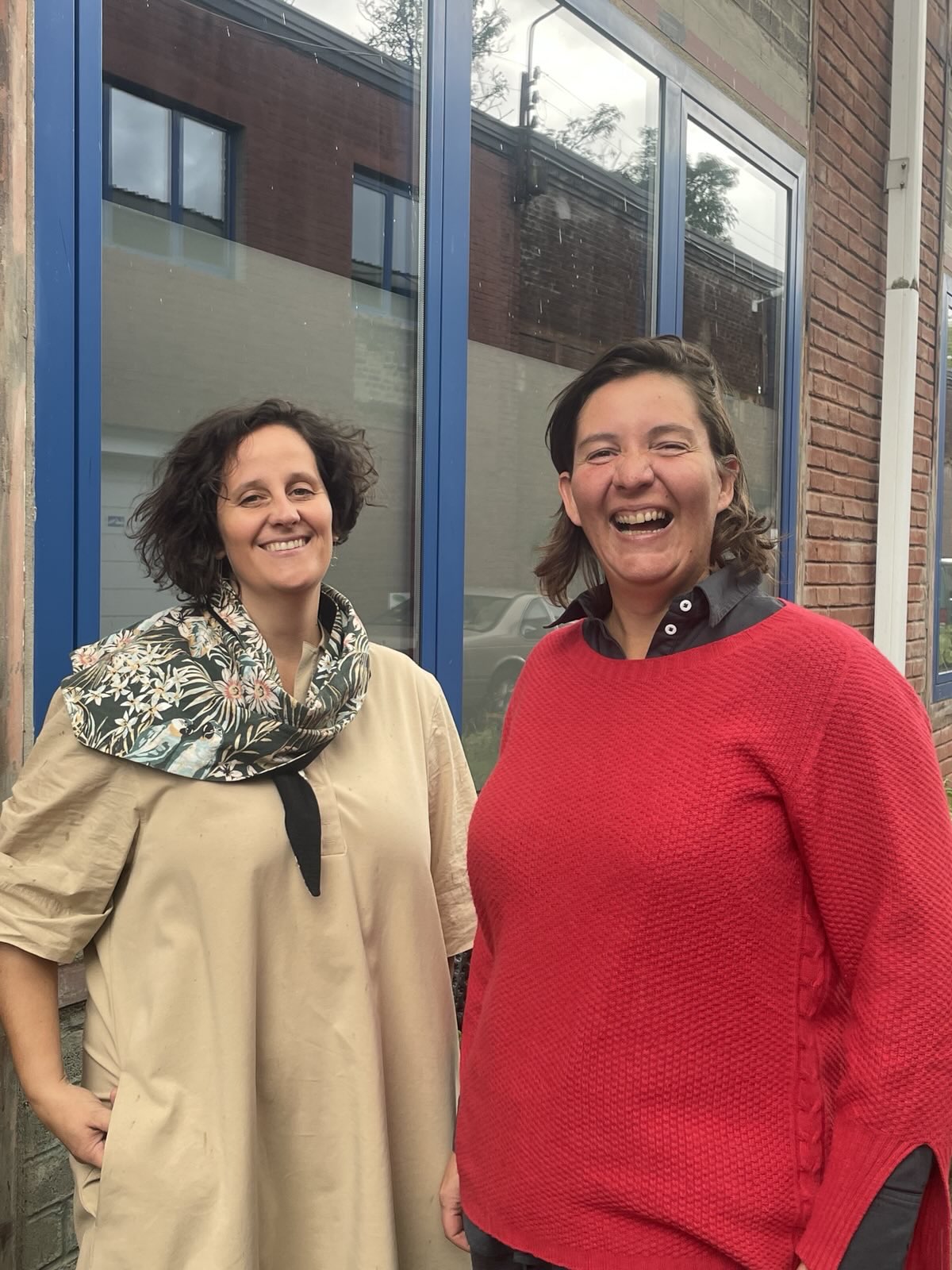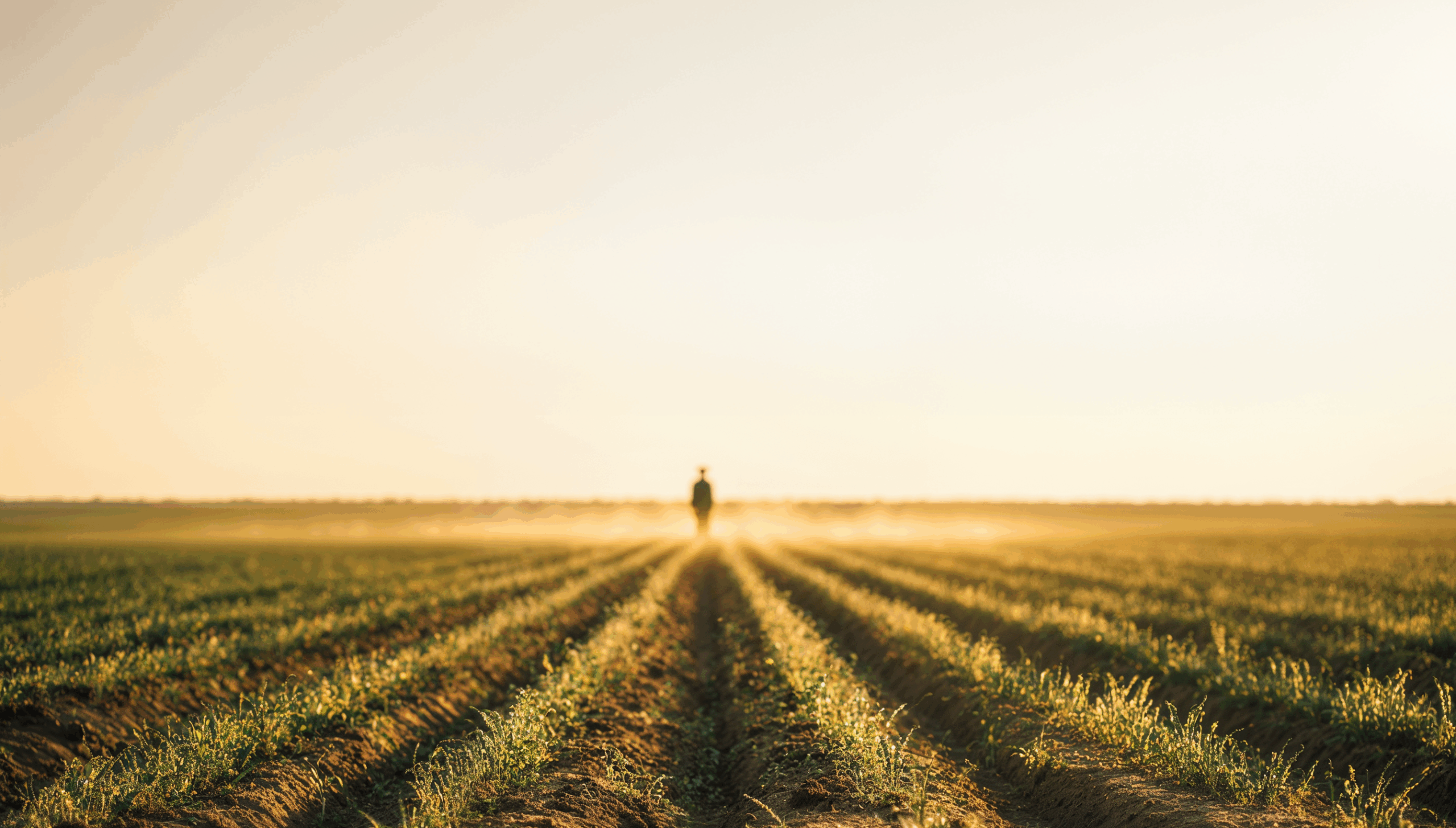For our association, 2024 has been a year of turning pages and writing new ones, of challenges overcome and many more to come. We have been able to count on close-knit teams both within the association and on the board of directors. Their values are aligned with those of SOS Faim and have enabled us to experience this year in a spirit of mutual support and kindness.

A word from the chairman and the director
Dear members and friends of SOS Faim,
Every year, we publish our annual report for the general public at the time of our Annual General Meeting. It includes a summary of the year's key initiatives, those of our partners and details of our finances. This year, the report is published digitally and a summary version is also available.
Céline Depiesse
Chairman
For SOS Faim, 2024 was marked by numerous transitions, both human and structural, but also by moments of hope, stability and renewal. As the new director, I joined a committed, solid team with a clear vision: that of a fairer, more sustainable form of agriculture that respects fundamental human rights.
We continued working alongside 28 partners in six countries, despite growing security, climate and political challenges, particularly in the Sahel. The work carried out around the AGRI+ scheme and the implementation of the FRCF-FA illustrate our ongoing commitment to strengthening the capacities of family farms, particularly through access to appropriate financial services.
Delphine Dethier
Director
A word from the Chairman
We saw the departure of our long-standing director Thierry Défense, whose long-term commitment we can all salute. Over the years, his presence and actions have enabled the deployment of ambitious and innovative projects with our partners, and the development of a spirit of partnership and mutual aid rather than unilateral assistance. The association has benefited from his ability to reflect and look ahead, often enabling it to stay one step ahead of its time. As a result, SOS Faim is a key player in development in the Grand Duchy of Luxembourg and, more specifically, in agricultural and food transition through its partnerships in Burkina Faso, Niger, Benin, Mali, Senegal and Ethiopia.
particulièrement de la transition agricole et alimentaire à travers ses partenariats installées au Burkina Faso, Niger, Bénin, Mali, Sénégal et en Ethiopie.
After 15 years of collaboration, Nedjma Bennegouch, previously head of the Partner Support Service, has put her commitment and skills at the service of another development association. It is with great pleasure that former colleagues continue to meet.
2024 was also an important year for the capitalisation of our AGRI+ programme, which ended in 2023 in Mali, Niger and Burkina Faso, where support, training and financial guarantee mechanisms were deployed, in particular by our national branches in Mali and Burkina Faso. Our team not only worked to integrate the essential and transformative elements of AGRI+ into our SAP framework agreement application, which was approved by the Ministry of Foreign Affairs for the period 2024-2028, but also obtained a substantial increase in the resources available to the association to continue its missions.
We were delighted to see the team grow with the arrival of Delphine Dethier as director and the move of Cécile Havard from the awareness-raising team to the partner support team.
2024 was also marked by a change of leadership within the Board of Directors. At our general meeting in June, Raymond Weber, who had been president of our association for six years, stepped down and my colleagues on the Board of Directors entrusted me with this role until the next meeting.
Raymond, who was particularly involved with the team during difficult times (notably the COVID period and its successive lockdowns) and in the political arena, enabled our association to grow and the board of directors to remain united in the face of adversity.
It was therefore with a strengthened team that the first Luxembourg edition of the AlimenTerre Festival took place, which, with 15 screenings and nearly 1,800 spectators, was a huge success and helped to raise awareness among a wide audience of the social, economic and environmental issues surrounding our food.
November also saw the opening of Teranga, which brought together more than 125 people at our food and agricultural transition centre in Schifflange, followed a few days later by the launch of the strategy project at our November thematic meeting, to which you were invited to participate.
We are carrying out our missions in increasingly difficult contexts: the rise of fascism in Europe, the decline of rights in many parts of the world – note the arbitrary arrest of Moussa Tchangari, secretary general of Alternatives Espaces Citoyens (p.6), who at the time of publication of this report is still in prison – an increase in the number of people suffering from malnutrition and hunger, the financialisation and industrialisation of agriculture and food, and a deteriorating security situation in the Sahel. Strategic reflection is essential to position ourselves collectively and in the medium term, among members, with the salaried team and with our friends, on the future of our association. It is essential to remain agile to ensure the fulfilment of our missions.
With this in mind, numerous projects were launched in 2025. Internally, we are developing an organisation based on a new shared governance model and control of our internal procedures, particularly financial ones. Externally, we are participating in working groups active in revising the terms of framework agreements for awareness-raising across the sector and strengthening the circle of NGOs.
To use the image that guides our strategic project, we have grain to grind in order to prepare a meal for everyone. To do this, we are fortunate to be able to come together around a collective project that goes beyond ourselves. A project that brings hope and justice, that is fruitful and nourishing, and that protects the most vulnerable among farmers and our environment.
Céline Depiesse
A word from the Director
2024 also saw the birth of Teranga, our agricultural and food transition centre in Schifflange. This community hub, or ‘third place’, which is a space for training, mobilisation and community life, is now an essential lever for raising awareness and engaging Luxembourg’s youth around sustainable and inclusive food systems. Its opening, layout, and the sense of ownership felt by volunteers and local partners are genuine examples of collective success
At the same time, we continued our citizen awareness-raising activities through educational tools such as the Agri’Alim frescoes, unifying events such as the Alternative Gourmet Walk and the launch of the AlimenTERRE Festival in Luxembourg.
However, this year was also marked by a period of uncertainty linked to the reform of Development Education launched by the MAEE. Designed to modernise approaches and promote new partnerships, this reform nevertheless plunged many organisations, including ours, into considerable uncertainty. The profound questions it raised were not without consequences: loss of visibility, administrative complexity, concerns about institutional support. We had to double down on our efforts to stay on course, maintain our commitments and preserve our capacity for action.
In this context, our mission to advocate for farmers’ rights has remained central. The symposium on 19 April, in partnership with the University of Luxembourg, helped to embed the United Nations Declaration on the Rights of Peasants in national academic debates. The creation of the UN working group, headed by a long-standing ally, strengthens our motivation to continue this fight.
Finally, 2024 has seen the launch of a major internal project: that of our governance, our organisation and our strategic coherence. This necessary introspection aims to ensure that SOS Faim remains an agile player, aligned with its values and capable of evolving in a rapidly changing environment.
I would like to express my heartfelt gratitude to the entire team, the Board of Directors, our partners in the field, our institutional and financial supporters, and every citizen who is committed to our cause. Step by step, we are moving agriculture and food towards greater justice and solidarity, together.
Delphine Dethier
